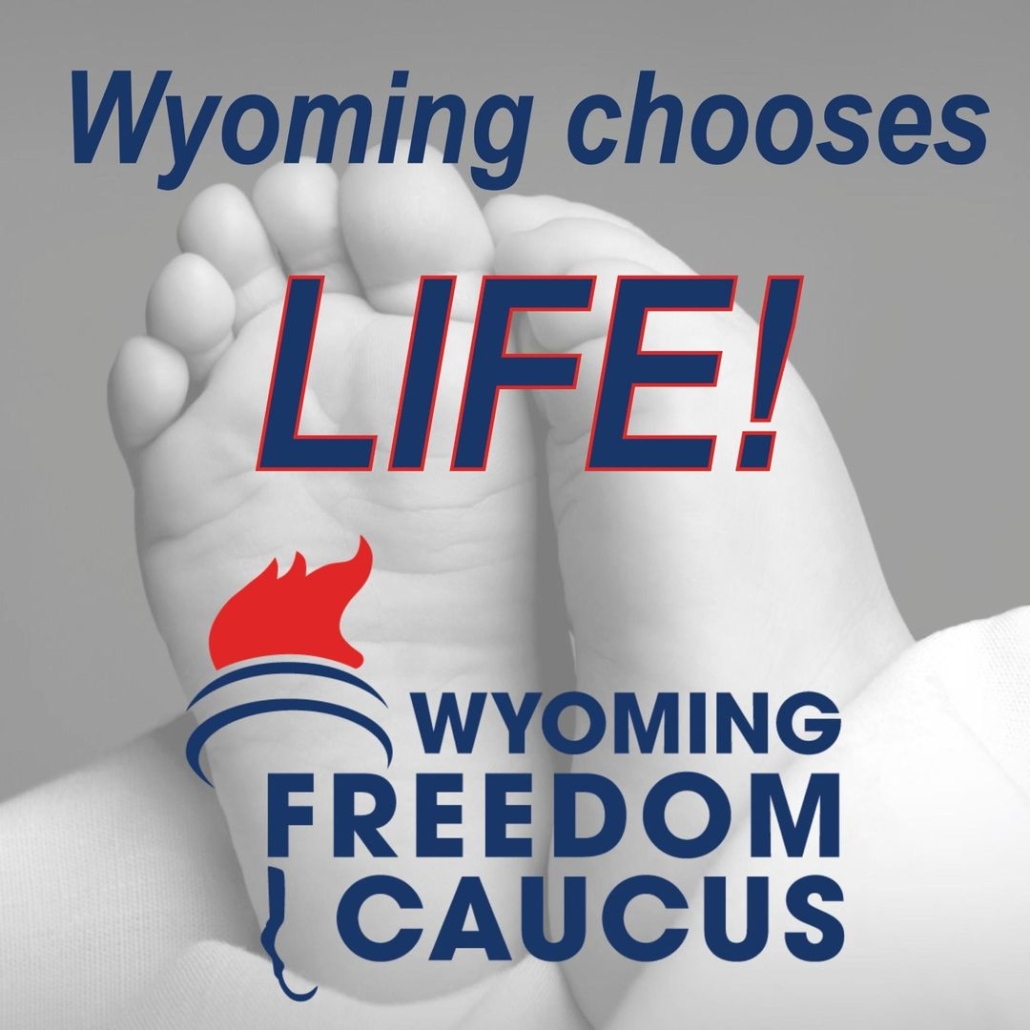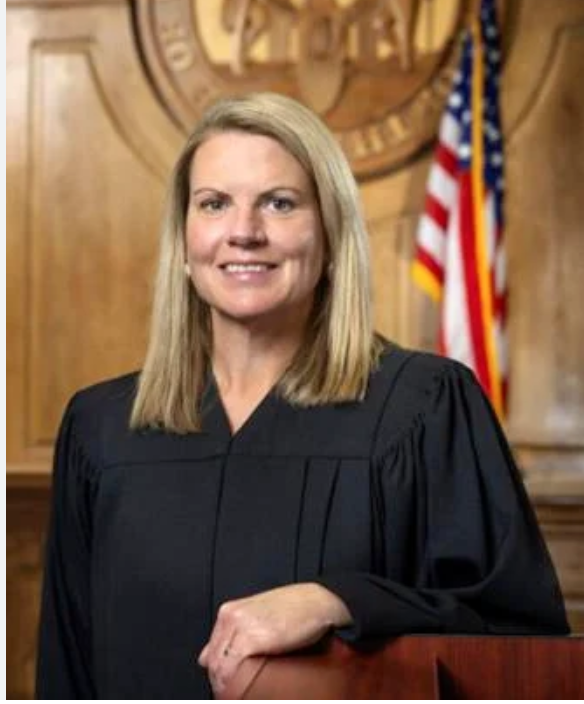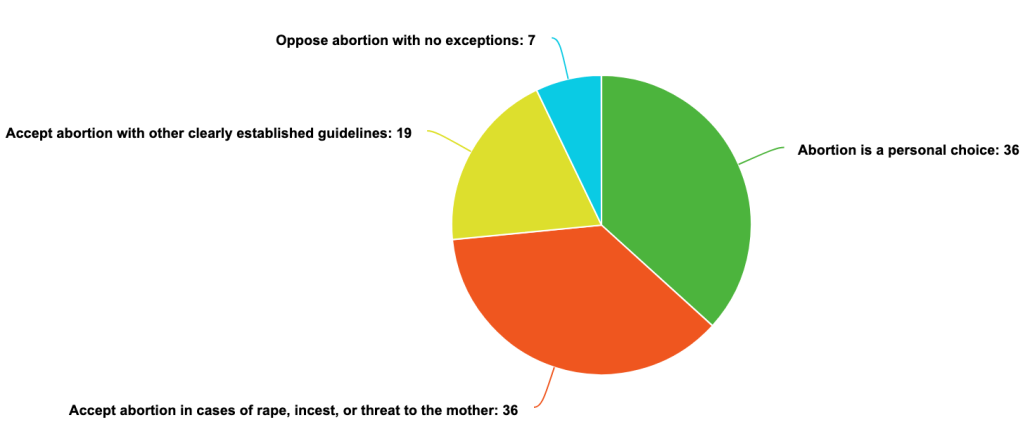History repeats itself, but not always so quickly and predictably as the Wyoming Legislature’s attempts to ban abortion.
During the recent 2023 legislative session, lawmakers passed two laws banning abortion—one made the procedure illegal in general, and the other specifically banned pharmaceutical abortions.
As soon as the broader of the two laws went into effect last weekend, it faced a court challenge. The narrower ban on abortion pills will be challenged before it goes into effect July 1, a plaintiff told Better Wyoming.
Critics argue that both laws violate the Wyoming Constitution, specifically pointing to the 2012 amendment that says competent adults should be free to make their own healthcare decisions.
On Wednesday, a Wyoming district court judge temporarily blocked the broader abortion ban from going into effect until a final ruling is handed down, likely from the Wyoming Supreme Court.
This will keep abortion legal in Wyoming, at least until the case is settled.
Déjà vu all over again
If this sounds familiar, it’s because this is exactly what happened last year. During the 2022 legislative session, Wyoming lawmakers approved a “trigger ban” that would go into effect in the event that the U.S. Supreme Court overturned Roe v. Wade. We all know what happened there.
The 2022 “trigger ban” was still tied up in court when the Legislature convened in 2023 and decided to pass yet another ban to replace it. In effect, they aborted the “trigger ban” in favor of their new baby, the “Life is a Human Right Act.”
Many lawmakers—on both sides of the abortion debate—warned their colleagues this year that passing a new abortion ban while the last one was still in court would simply reset the clock on the whole process. It would force the courts to effectively start over and delay a determination of whether or not banning abortion violates the Wyoming constitution.
They aborted the “trigger ban” in favor of their new baby, the “Life is a Human Right Act.”
In the meantime, the procedure would remain legal.
But lo and behold, members of the far-right “Freedom Caucus” pushed ahead. Their election strategy depends on ginning up hysteria over hot-button issues like abortion, not creating good policy. So, they beat their chests and speechified about baby murder and demanded their colleagues create a new ban to replace the last one.
Governor Mark Gordon allowed the “Life is a Human Right Act” to go into law, albeit without his signature (he signed the pharmaceutical ban).

In his comments about the “Life is a Human Right Act,” the governor reiterated doubts that it would actually ban anything. He worried that it would merely delay a final decision by a year or two.
Gordon foreshadowed the possibility that the Wyoming Supreme Court will rule that banning abortion is, in fact, unconstitutional, and that the issue will eventually be put on the ballot for voters to decide.
“I believe now more than ever that if the Legislature seeks final resolution on this important issue, it ultimately may have to come through a Constitutional amendment,” Gordon said.
Separation of powers
That a judge blocked the “Life is a Human Right Act” from going into effect Wednesday surprised few people.
Last year, the same official, Teton County District Court Judge Melissa Owens, issued the decision blocking the “trigger ban.” The only real difference between that law and the “Life is a Human Right Act” is that the latter contains a bunch of weird statements talking about how abortion is not healthcare and that life begins at conception.

To Owens, embedding statements like this into the language of a law is an attempt to instruct the judicial branch about how to interpret it. This violates the separation of powers between the judicial and legislative branches of government, she said.
Owens also questioned one of the LHRA’s main assertions: that abortion is not, in fact, healthcare.
“To declare abortion is not healthcare when there may be evidence to show that it is—the legislature cannot make an end run around essentially providing a constitutional amendment,” Owens said. “The state cannot legislate away a constitutional right. It’s not clear if abortion is or isn’t healthcare, and the court has to then decide that.”
Conflicting penalties
With the passage of “Senate File 109 – Prohibiting chemical abortions” Wyoming became the first state in the nation to create a ban specifically targeting pharmaceutical abortions.
Pharmaceutical abortions account for more than half of all abortions nationwide. According to the Center for Disease Control and Prevention, the only abortion provider currently operating in Wyoming only provides abortions using pills. This is in addition to people who acquire the drugs and administer the procedure at home.
“I presume the Legislature understood that these inconsistencies could create confusion.”
Bizarrely, SF-109 and the “Life is a Human Right Act” levy different penalties for doctors who facilitate abortions.
Under the LHRA, doctors would be charged with a felony for performing an abortion in Wyoming, with a sentence up to five years in prison and/or a $20,000 fine.
Under the chemical abortion ban, providers can be charged with a misdemeanor for dispensing, distributing, selling, prescribing, or using medications to terminate pregnancies. Punishment upon conviction would be up to six months in prison and a $9,000 fine.
Gov. Gordon noted this inconsistency in his comments upon refusing to sign the “Life is a Human Right Act.”
“I recognize that the two bills were delivered by the same Legislature, so I must presume the Legislature understood that these inconsistencies could create confusion regarding restrictions on abortions,” he stated.
However, instead of doing anything about it, Gordon essentially shrugged his shoulders and let the bills pass, knowing that they would almost immediately be suspended by the courts.
The people will decide
Agreement exists among at least some legal experts that the part of Wyoming’s constitution that guarantees healthcare freedom prohibits the legislature from banning abortion outright.
If these experts are wrong, and the courts uphold either the pharmaceutical abortion ban or the “Life is a Human Right Act,” abortion will be illegal in Wyoming except under a very narrow set of circumstances.
If, however, the courts agree that abortion is, in fact, healthcare, anti-choice activists and lawmakers will have limited options to proceed: Most likely, they will need to try to change Wyoming’s constitution.
This would involve passing a resolution through the Legislature, which requires a two-thirds vote in both chambers. The resolution would then be put on the ballot during the next general election, and a majority of voters would need to cast a ballot affirming that they want to see abortion banned.

According to multiple surveys, most Wyomingites oppose banning abortion. In 1994, a ballot measure to ban abortion failed by 20 percentage points. It does not appear that attitudes about abortion in the state have changed much since then.
However, Wyoming has a very low voter turnout, and an increasing number of people who do go to the polls are folks who have been mobilized by hot-button national issues like abortion.
As the Legislature continues to restrict voting rights and more and more people become disenfranchised and demoralized, it will be no “gimme” that a question on the ballot to ban abortion would be defeated.
But as voters in Kansas taught us when they defeated a measure similar to what would come before Wyoming voters, with enough grassroots organizing and turnout, even deeply conservative states can thwart attempts to block reproductive rights.

